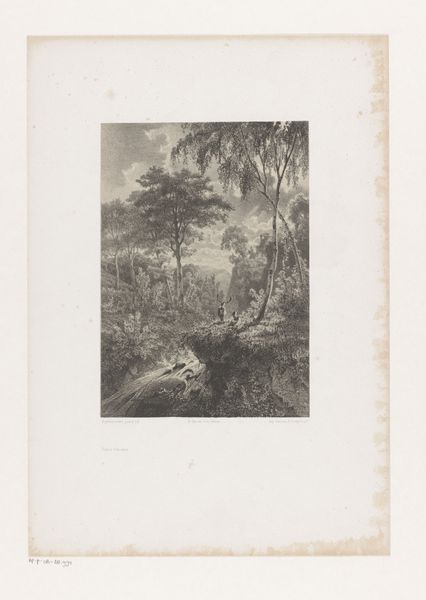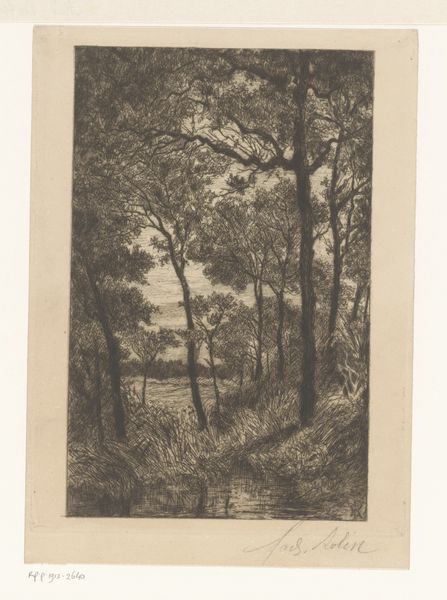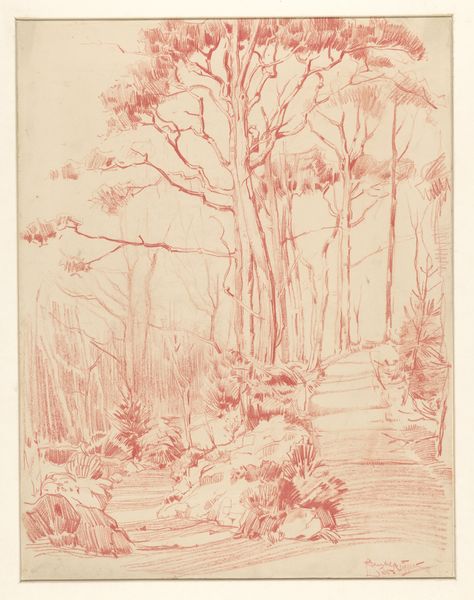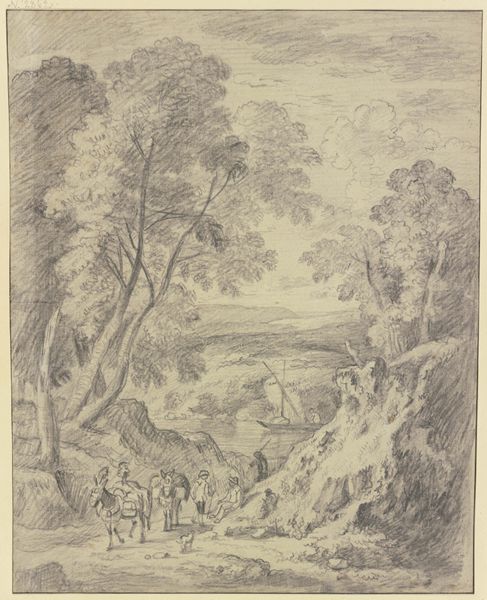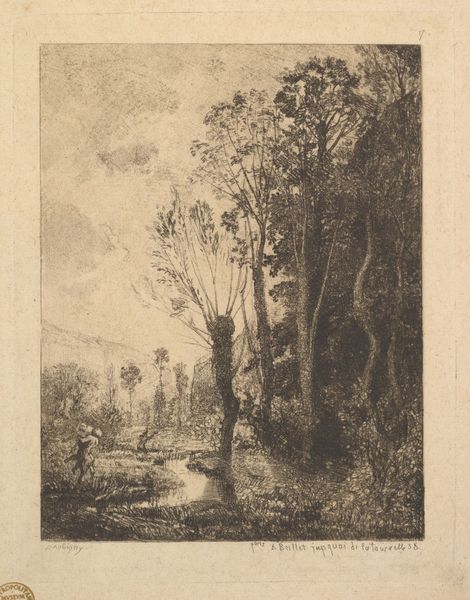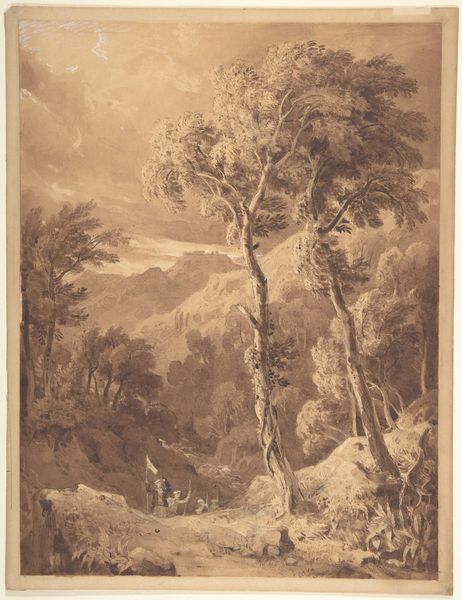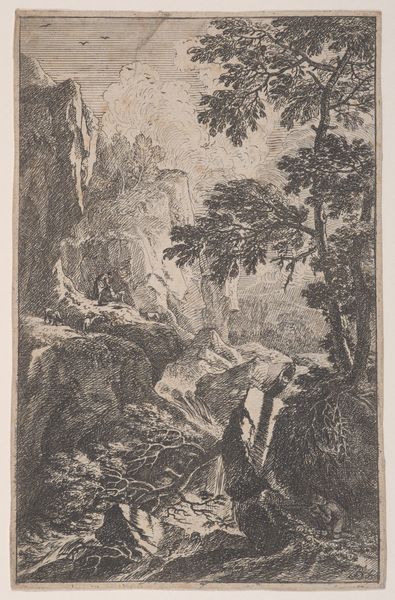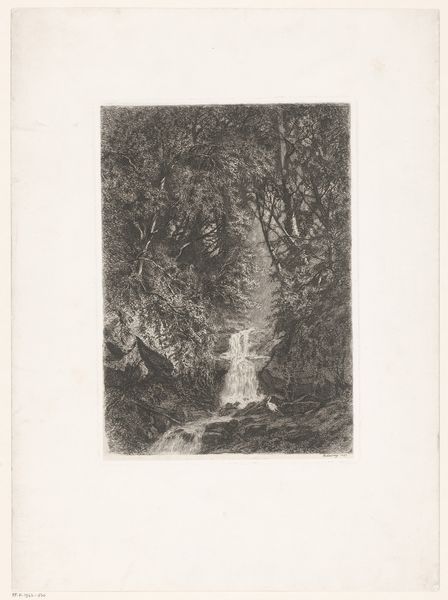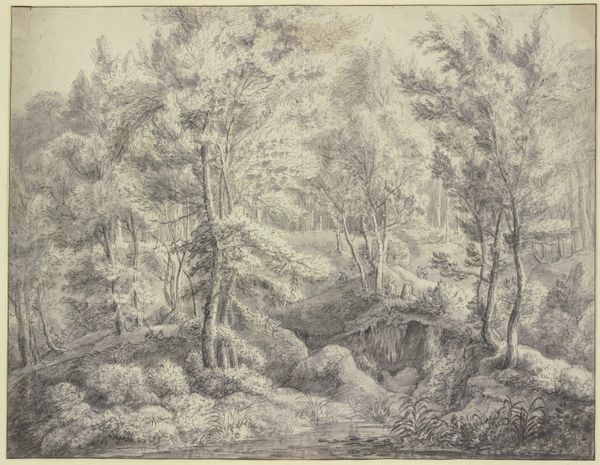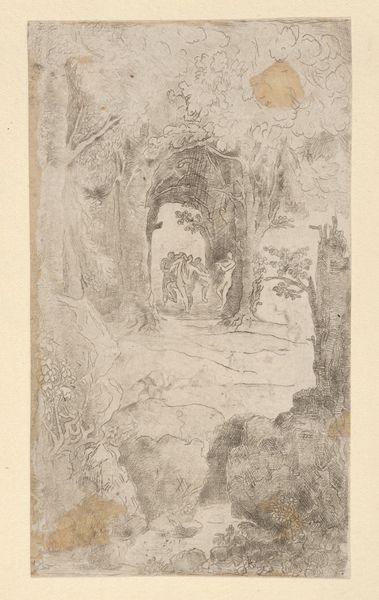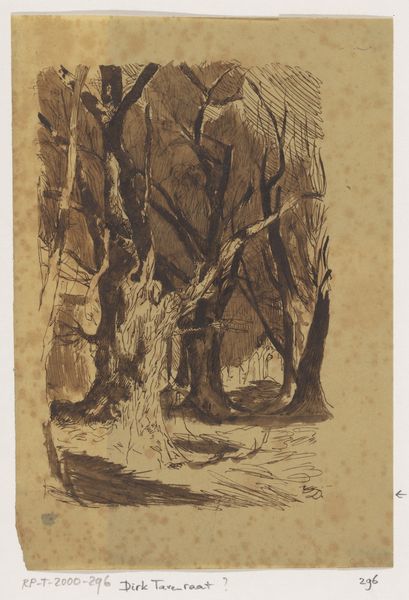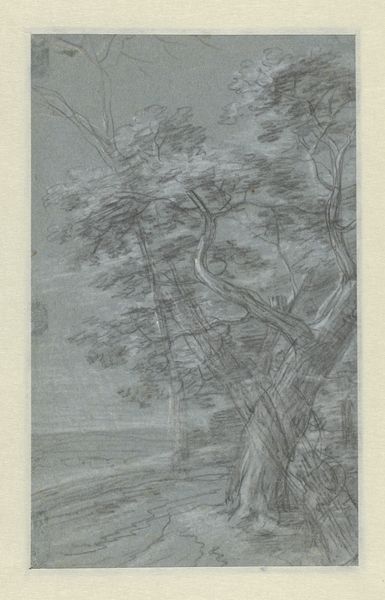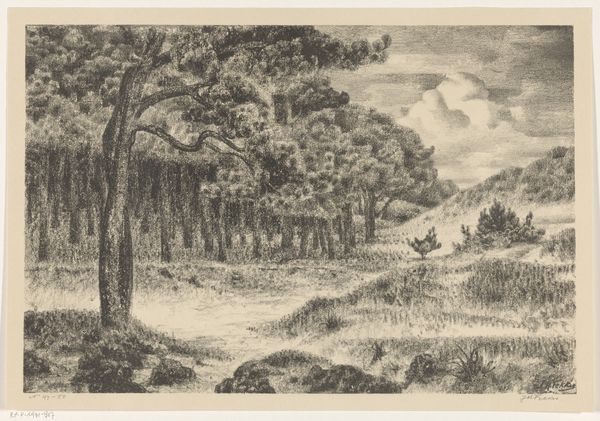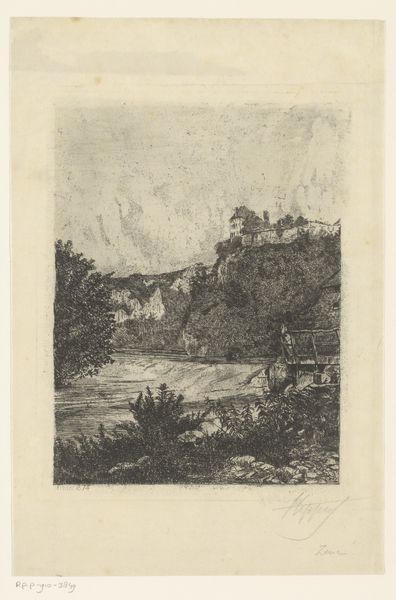
print, engraving
# print
#
old engraving style
#
landscape
#
romanticism
#
line
#
engraving
#
realism
Dimensions: height 207 mm, width 162 mm
Copyright: Rijks Museum: Open Domain
This print of Alum Springs at Hackfall was made anonymously with etching, a process that’s all about controlled corrosion. To make it, the artist would have coated a metal plate with a waxy, acid-resistant ground, then scratched an image into it with a needle. Immersing the plate in acid would bite away the exposed lines, creating grooves. The deeper the bite, the darker the line would appear in the final print. Look closely, and you'll notice the artist uses different densities of etched lines to create the illusion of shadow and volume, a meticulous process. The availability of alum, a chemical compound, was vital for industries like textile dyeing and leather tanning, placing this scene within a wider context of resource extraction and manufacturing, and the labor that goes into it. Considering the matrix of manufacture offers a richer understanding of the work, and dissolves conventional hierarchies between fine art and other areas of creative production.
Comments
No comments
Be the first to comment and join the conversation on the ultimate creative platform.
